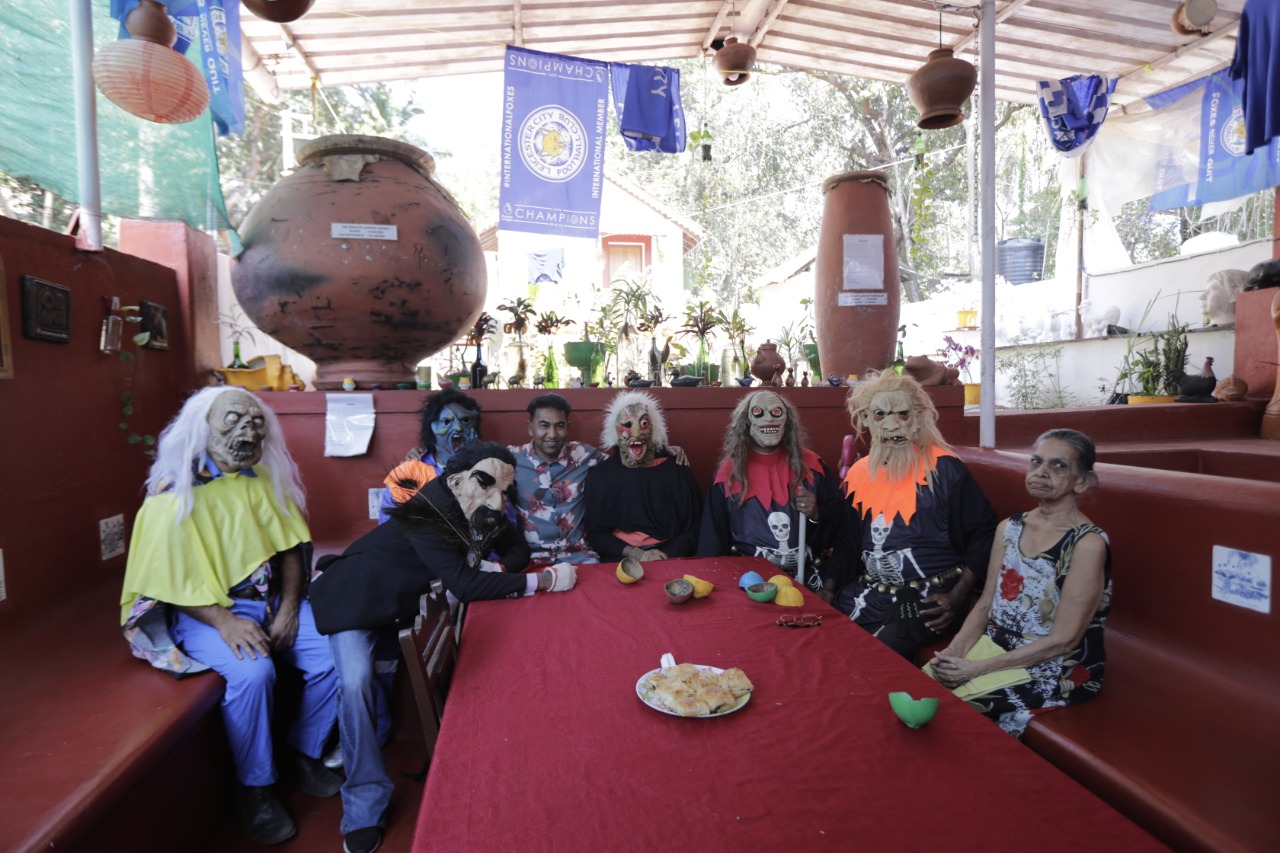Almost similar to Halloween in the West, in Diwar, especially in the villages of St. Mathias and Piedade, the Masked Parade Festival or Potekarachem Fest is celebrated. This Festival is held during the three days of Carnival, in the month of February, before Ash Wednesday, beginning the austere period of Lent.
Potekar literally translates to ‘shabby’
As part of the Carnival festivities, the Diwarkars celebrate the Potekarachem Fest. Poterkar literally translates to ‘shabby’. Therefore funnily it could be the ‘shabby’ fest. Why it was celebrated is still unknown. But it is unique only to these two villages in Goa.

Idea behind the masking
The idea behind the Masked Parade of the Potekars is that all the villagers, young and old, rich or poor can celebrate together, with no distinction of caste or creed, wearing masked costumes.
In the olden days
Portuguese officials and their slaves wore masks in role play. The Portuguese authorities wore masks representing slaves and the slaves wore masks representing their masters and paraded around the village. The masks were usually made of white flour. The mask provided anonymity to the participants cutting across class and also during unbridled revelry. The exact origin and reason behind the Potekar festival is not known. Some folks believed that the scary masks were used to ward off evil.
Gaunkars took it upon themselves to carry on the tradition
‘Gaunkars’ or sons of the soil as they are called, dress as ‘Potekars’ in colourful clothes, put on scary masks to hide their identity and parade the streets of the village. The masks that they wear resemble dreadful ghost-like characters. The Gaunkars camouflage their voices so as not to be recognized. They wear or carry clanging cow bells around their waists or ankles to sound the villagers of their arrival and create a festive stir among the audiences. Some of the Potekars carry sacks to frighten little children. It is said that though the Potekar festival may seem superstitious, children are taught moral values and good behaviour in exchange for their obedience.
Significance in ancient times
In ancient times, winters were harsh and deemed as evil. According to some beliefs, these masks would be a symbol of warding off the evils of winter and hailing the warmer spring time.
Modern day version

In Goa, earlier, the masks were made by hand or out of flour but today there are plenty of ready-to-wear types available online or in the market. Today the shabby clothing is replaced by proper costumes and fancy ready made masks of evil looking creatures and ghosts, one scarier than the other.
This year it’s was celebrated with great fervor thanks to the untiring efforts of our very own ‘Goencho Festakar’, Marius Fernandes. Originally male members of the village donned masks but today its more of a fun event for children and adults alike, which has encouraged participation from the female counterparts as well. Children are not afraid and join in the festivities. They even invited the Potekars into their homes for a treat. Marius Fernandez, one of the main promoters and sponsors of the Fest, and his famous “90 year young mother”, Antoinette Fernandes opened their home to the Potekars.

The Festive Part
The Masked Potekars would spring a surprise on the unsuspecting villagers, suddenly appearing from nowhere. Some even play a trick or two on the bystanders. Once on the streets they enter random village houses and demand food or snacks and drinks, as part of the festivities and the happy villagers comply. This Potekar festival of Goa also showcases the unity and hospitality of the villagers in Diwar and in general the people of Goa.

How to get to the Island of Diwar?
The villages of St Mathias and Piedade are situated on the Island of Diwar, an island off the coast of Old Goa, a beautiful island steeped in history. Accessible by ferry from Ribandar, Old Goa or Bicholim. The island celebrates its own festivals that are unique to it. One of them is ‘Bonderam’ or the Flag Festival and the other being ‘the Potekarachem Fest‘ (Potekar literally translated means ‘shabby’) or Masked Parade Festival of St Mathias and Piedade.
The Indian Mask tradition
India is a culturally vibrant land. Mask making is a tradition practiced in many states and villages. Frightful looking masks are common to states like Ladakh, Sikkim, Kerala, Dinajpur in West Bengal and Diwar in Goa. Some emulate deities while others were used to drive away all evil and usher in good fortune.



